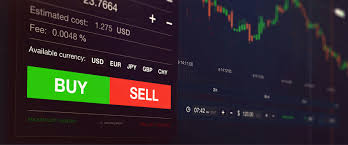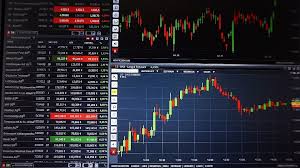The Meaning of Forex Trading A Comprehensive Guide 1612062485

The Meaning of Forex Trading: A Comprehensive Guide
Forex trading, or foreign exchange trading, is the process of buying and selling currencies in the global market. It is the largest financial market in the world, with a daily trading volume that exceeds $6 trillion. Forex trading allows individuals, businesses, and institutions to exchange one currency for another, making it essential for international trade and investment. For those looking to understand the intricacies of this marketplace, forex trading meaning Argentina Brokers can provide guidance and resources.
Understanding Forex Trading
At its core, Forex trading involves the exchange of currency pairs, such as EUR/USD (Euro/US Dollar) or GBP/JPY (British Pound/Japanese Yen). Traders speculate on the price movements of these currency pairs, hoping to profit from fluctuations in exchange rates. The Forex market operates 24 hours a day, five days a week, allowing traders from all over the world to engage in currency trading at any time.
Why is Forex Trading Important?
The importance of Forex trading extends beyond just individual profit. It plays a critical role in the global economy by facilitating international trade and investment. Here are several key reasons why Forex trading matters:
- Liquidity: Forex is the most liquid market in the world, meaning that traders can easily buy and sell currencies without significantly affecting their price.
- Market Accessibility: With advancements in technology, Forex trading has become accessible to individuals and small investors, allowing anyone to participate.
- Economic Indicators: Currency values are influenced by economic indicators such as interest rates, inflation, and political stability, making Forex a reflection of economic health.
How to Start Trading Forex
If you’re interested in venturing into Forex trading, here are fundamental steps to get started:
1. Educate Yourself
Understanding the basics of Forex trading is crucial. There are numerous online resources, courses, and tutorials available to help beginners learn about currency pairs, market analysis, and trading strategies.

2. Choose a Reliable Forex Broker
Selecting the right Forex broker is vital for your trading success. Look for brokers who are regulated, offer competitive spreads, reliable customer service, and a user-friendly trading platform.
3. Develop a Trading Plan
A well-defined trading plan outlines your trading goals, risk tolerance, and strategies. It serves as a roadmap, helping you stay disciplined during your trading activities and manage your investments effectively.
4. Practice with a Demo Account
Most brokers offer demo accounts that allow you to practice trading with virtual money. This is an excellent way to familiarize yourself with the trading platform and test your strategies without risking real money.
5. Start Trading with Real Money
Once you feel confident in your trading skills, you can begin trading with real money. Start with smaller amounts to manage risk while you continue to learn and refine your trading techniques.
Common Forex Trading Strategies
Several strategies can be employed in Forex trading, depending on your goals, risk tolerance, and market conditions. Here are a few popular strategies:

1. Day Trading
Day traders open and close positions within the same trading day, aiming to profit from short-term price movements. This strategy requires constant monitoring of the market and a good understanding of technical analysis.
2. Swing Trading
Swing traders hold positions for several days or weeks, capitalizing on medium-term price trends. This approach allows for a more relaxed trading schedule compared to day trading.
3. Scalping
Scalping involves making a large number of trades over short periods, aiming to capture small price changes. This strategy requires a strong focus and quick decision-making skills.
Risks in Forex Trading
While Forex trading can be lucrative, it also comes with its share of risks. Understanding these risks can help traders to navigate the market more effectively:
- Leverage Risk: Forex brokers often offer high leverage, which can amplify gains but also losses. Traders must be cautious and use leverage wisely.
- Market Risk: Currency prices can be highly volatile, influenced by various factors. Unforeseen events can lead to significant fluctuations.
- Counterparty Risk: This risk arises if your broker fails to fulfill their contractual obligations, which can happen if they face financial difficulties.
Conclusion
Forex trading presents an exciting opportunity for individuals looking to engage in the financial markets, whether for supplemental income or as a full-time career. By understanding the basic principles, employing effective strategies, and managing risks, anyone can navigate this dynamic marketplace. As the Forex market continues to evolve, ongoing education and adaptability will be vital for success. With diligence and a strategy in mind, you can start your journey into Forex trading.

Deixe uma resposta
Want to join the discussion?Feel free to contribute!